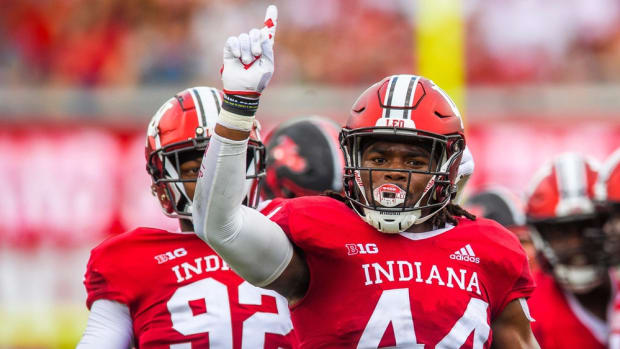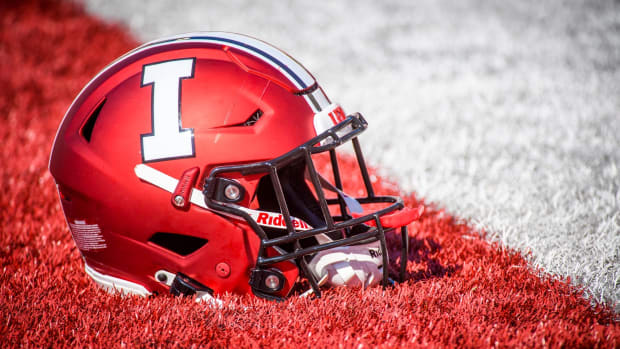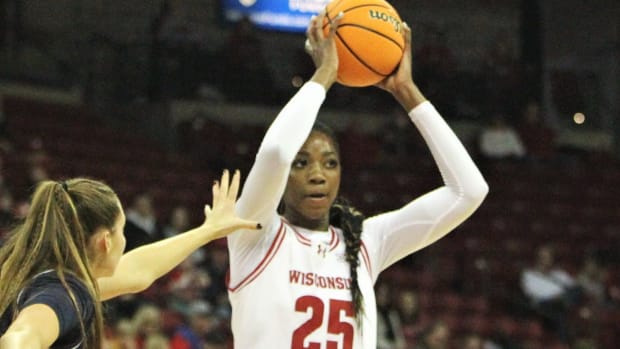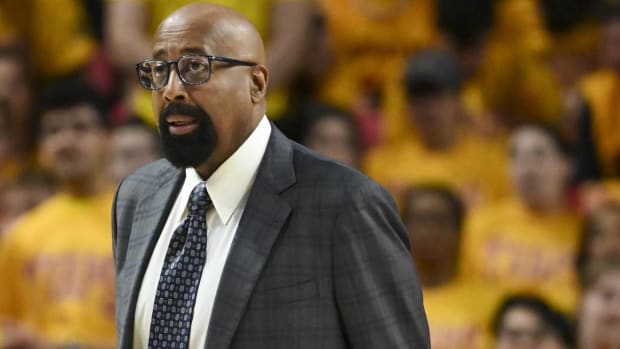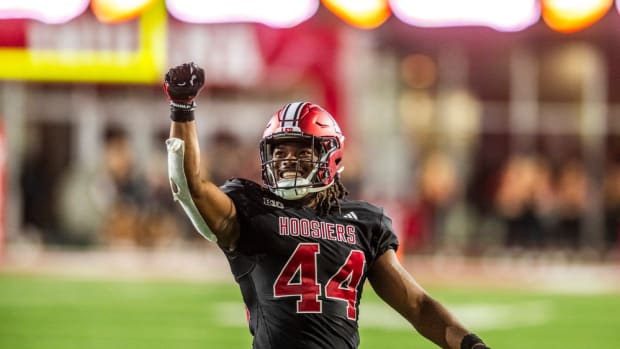My Two Cents: Big Ten May Re-Vote on Fall Football Sunday, But Solution Isn't Obvious
BLOOMINGTON, Ind. — Human nature is a powerful thing. It's difficult to admit it when you've makd a mistake, especially when it's done in public for all the world to see.
And it's even more difficult once you've made a mistake to reverse course and do things a different way. Do the full 180. That's very, very hard, especially with millions of eyeballs on you.
That's where the Big Ten's presidents and chancellors sit on this Sunday morning. They made a decision back on Aug. 11 to cancel the fall football season and move it to sometime in the spring. They did that after reviewing reams of medical evidence, and determined it wasn't safe to move forward this fall in this present COVID-19 pandemic environment.
The announcement came just six days after the Big Ten announced its revised football schedule. We would have just wrapped up Week 2 on Saturday, but instead, the Big Ten football season sits on hold.
Sits while others are playing.
There can be great arguments on both sides about whether the presidents made a mistake in pushing football out of the fall. The medical evidence, especially on heart issues among players who had COVID, legitimately scared them. They were reading fresh details on what was happening to Big Ten athletes who had been hospitalized, most notably Indiana freshman Brady Feeney, who was hospitalized with COVID, and has been tested and treated often since July by cardiologists. Feeney's story went viral just prior to the vote, and it certainly had an impact that Feeney and several others were getting heart issues from COVID.
The vote was 11-3 and it wasn't even close, with the medical information being the primary factor in the vote.. Indiana president Michael A. McRobbie was part of the 11, voting to not play football in the fall. Whether they were right, however, is certainly up for debate.
But where there is NO DEBATE is that they made a huge error in thinking that the rest of college football would follow them to the spring.
The SEC, ACC and Big 12 all decided to play in the fall anyway. There's been a few hiccups along the way, but the ACC played four conference games on Saturday, including Duke at Notre Dame in South Bend, Ind.. Seven Big 12 teams have played a game so far, too, and the SEC kicks into high gear on Sept. 26.
They are playing a fall schedule, and they will crown a national champion, too. They'll do it with or without the Big Ten, and those conferences truly don't care either way.
That's what has made this difficult for the Big Ten. They are the outlier now, and everyone is taking shots at them.
There are short-term ramifications to be sure, with losing out on millions of dollars from football, but there are long-term issues as well. The league presidents and chancellors are being pressured to admit their mistake and change their minds, to start a fall season as early as October and be a part of the national college football picture in 2020.
It seems so easy to backtrack, but don't presume for a second that they will go there. If they re-vote, you have to remember that their first concern will always be the health and well-being of the student-athletes on their campus. They have fresher medical evidence now, and that might help them change their mind.
But it also might not. They don't want people getting sick — or even worse, dying — on their watch. This pandemic hasn't slowed down at all, and in fact, numbers are up since Aug. 11, not down.
But what's also happened since then is that Big Ten schools have proven that they have protocols in place that work. Positive test results have been very low and, at some schools, it's been zero inside some football programs.
Several schools, most notably Ohio State and Nebraska, have yelled loudly about playing again in the fall. There are Nebraska lawyers involved who have sued the league to play. That certainly has the attention of the Big Ten presidents.
There are several other schools, including Indiana, that want to play, too. Indiana coach Tom Allen has said all along that he wanted to play, and if they can play in the fall, they will, and the Hoosiers will be ready.
So we'll have to see what happens today. Will the Big Ten blink and change course? If they do, then when will a season start? And when will we see a THIRD 2020 Big Ten football schedule?
It all seems so simple to admit they were wrong and move forward with a fall schedule.
But here's the important fact to remember: The majority of these presidents and chancellors felt like they did make the right decision in August. The vote was 11-3, so it wasn't even close. There is absolutely no guarantee that they think they made a mistake. And they won't want to make a bigger mistake now, not after the worst month in Big Ten history.
So now, we sit and watch. It's going to be an interesting Sunday.
Related stories
- MYOCARDITIS CONCERNS: One of the medical reports that weighed heavily in the Big Ten's decision to postpone football dealt with the effects COVID-19 was having on athletes' hearts who were testing positive. CLICK HERE
- TRUMP WEIGHS IN: President Donald Trump is trying to twist some arms to get the Big Ten back on the football field. CLICK HERE
- BIG TEN VOTE TO POSTPONE 11-3: The official vote between the Big Ten's chancellors and presidents to postpone college football this fall was 11-3. CLICK HERE
- LIVE BLOG TODAY: It's Sunday, Sept 13 and we'll keep you updated as news emerges on Sunday. CLICK HERE
